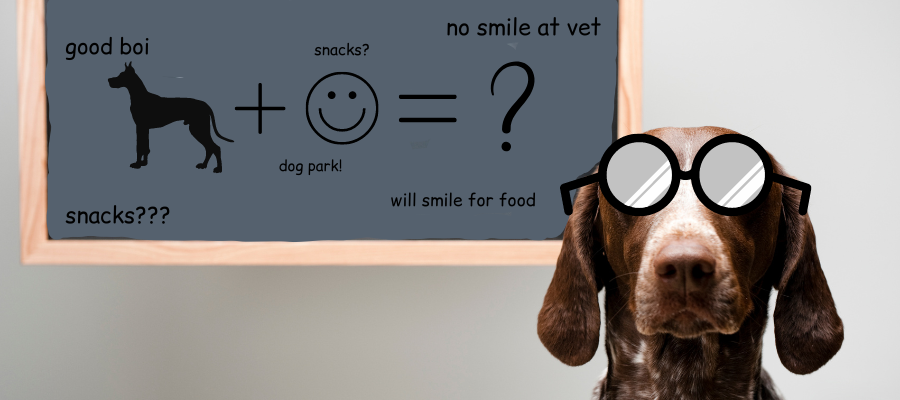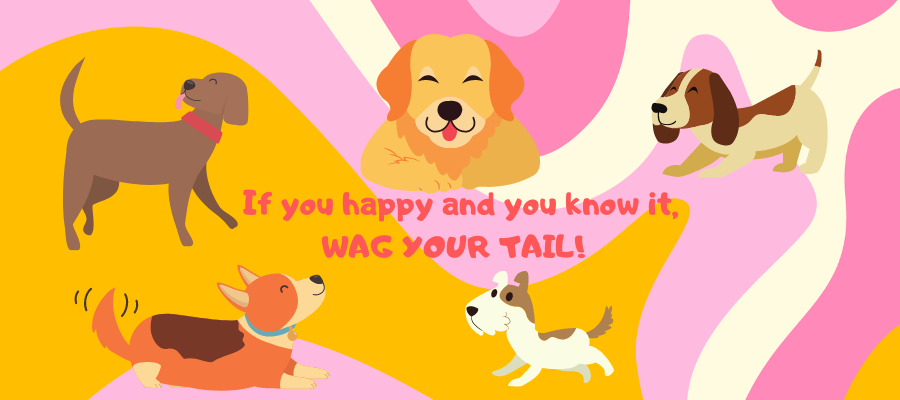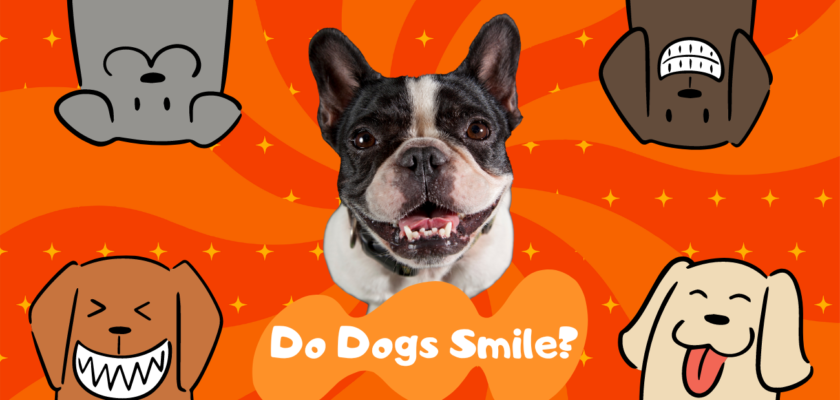Key Takeaways
- What appears to be a dog’s smile, may actually be a sign of submission 🐕
- Dogs tell you they are happy by tail wagging, and by spending time with you 🐕
- Dogs can and do recognize a human smile, and will often mimic the emotions of their owners 🐕
Do Dogs Smile? – What Science Says

It’s a question that has long been debated – do dogs smile? Some people believe that dogs really can smile, while others think it’s just a facial expression that looks like a human smile. But what does the science say?
There is no definitive answer, but there is some evidence to suggest that canines may indeed smile. For example, a study published in the journal “Animal Cognition” found that when dogs were shown photographs of happy and angry human faces, they tended to mimic the expressions on the faces in the photographs. This suggests that dogs are able to interpret facial expressions and understand when someone is happy or angry.
Another study found that when dogs were exposed to positive human emotions, such as happiness and love, their heart rates slowed down – a sign that they were relaxed and happy.
So while there is no conclusive proof that dogs smile, the evidence does suggest that they may have the ability to do so. And if you’ve ever seen your dog move its tail or tilt his head when you come home from work, you know that they certainly seem to be happy when they see you.
A Dog’s Smile – What Is It Really?

One of the most common and easily recognized signs of submission is a dog’s “submissive grin.” This occurs when a dog pulls his lips back to expose his teeth in a wide smile. So, why do dogs smile like that?
This gesture often occurs when a dog is confronted by a dominant individual or when he is feeling scared. A submissive grin is often accompanied by a lowering of the dog’s head and body, and can be a sign that the dog is trying to avoid conflict.
While it’s important to be aware of a dog’s behavior in order to avoid potential conflicts, it’s also important to remember that not all dogs will exhibit all of these gestures. Each dog is unique and will express his feelings differently. So if you’re ever unsure about what your dog is trying to say, it’s always best to ask an experienced dog owner or dog trainer for their interpretation.
Did You Know?
When you dream about a smiling dog, it’s a sign of joy coming soon to your life. If the dog is smiling maliciously, though, it means something you’re afraid of may be trying to manifest again.
How Can Dogs Show That They Are Happy?

Dogs communicate their happiness through various gestures and body postures. One of the most common is wagging their tails. If you see your dog moving his tail energetically from side to side, it’s a sign that they’re happy and content. Dogs can also smile by wrinkling up their noses or pulling back their lips to expose their teeth in what’s called a “smile.” They may also perk up their ears and wag their tails rapidly when they see someone they’re happy to see. In general, you can tell that your dog is happy by looking for any signs of tail moving, smiling, or general excitement.
If your dog is acting differently than usual or seems to be trying to tell you something, it’s important to pay attention and try to understand what the’s trying to say. If your dog is wagging its tail but has a tense body or growling, it may be indicating that he’s uncomfortable or feeling threatened. When your dog is licking his lips, yawning, or sneezing, it may be a sign of stress.
If you’re not sure what your dog is trying to tell you, it’s always best to consult with a professional trainer or behaviorist who can help you interpret your dog’s body language. With a bit of observation and understanding, you’ll be able to better understand what makes your dog happy and keep them healthy and content.
Dog Body Language: Face Expressions

Dogs use their body language to communicate with each other and with us. When dogs open their mouth and shows teeth, they are usually communicating that they are afraid or threatened. This is called a “threat display.” Dogs can do this when they are playing too rough or when they encounter something unfamiliar.
It’s important to understand what your dog is trying to say so that you can respond appropriately. For example, if your dog is displaying this behavior because he’s afraid of something, you may need to comfort him or move him away from the source of his fear. If your dog is doing this as part of a game, you may need to intervene and stop the game. By understanding your dog’s body language, you can help keep your dog safe and happy.
Dogs will often open their mouths wide and stick out their tongues when they’re panting. This is because dogs cool down by evaporation – when they do that, they lose water through their mouths and noses. When a dog is panting, it’s usually because he is hot or tired. Dogs will often do that after playing fetch or going for a long walk. While this behavior is normal, it’s important to be aware of other signs that your dog might be sick or in pain. If your dog starts panting excessively or if he seems to be doing it for no reason, it’s a good idea to take him to the vet.
Do dogs smile? Next time you’re wondering, just go with your gut feeling and say yes – they probably are! And if you’re wondering whether they can laugh, click here!
Similar Posts:
- Why Does My Cat Reach His Paw Out to Me? Answers for Curious Cat Parents
- Do Dogs Cry? | Why Does Your Dog Cry Tears and Whine
- Why do the cats wag their tail, and what does it mean?
- How to Introduce Dogs to Each Other? A New Dog in Your House
- Do Cats Blink? What Lies behind the Slow Blink? The Fascinating Truth Behind This Common Behavior
- Why Does My Dog Put His Paw on Me? What Is He Trying to Tell?
- Do Dogs Laugh? Can You Make Your Dog Laugh?
- Why Does My Cat Stare at Me?

